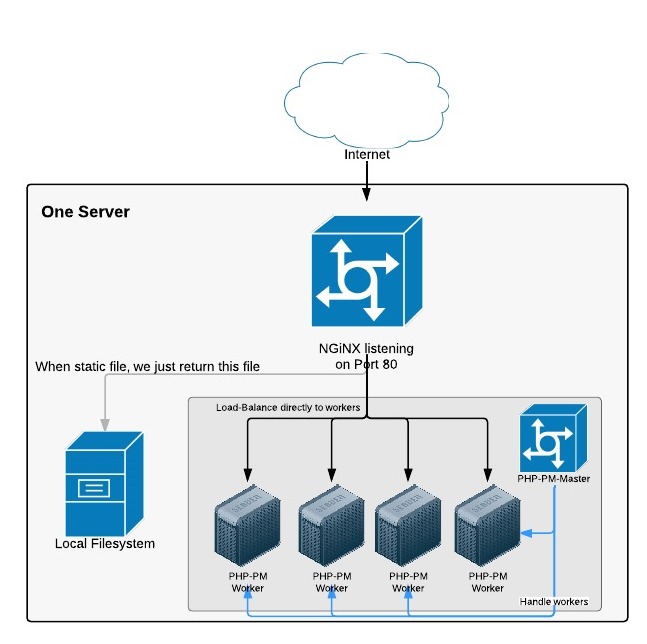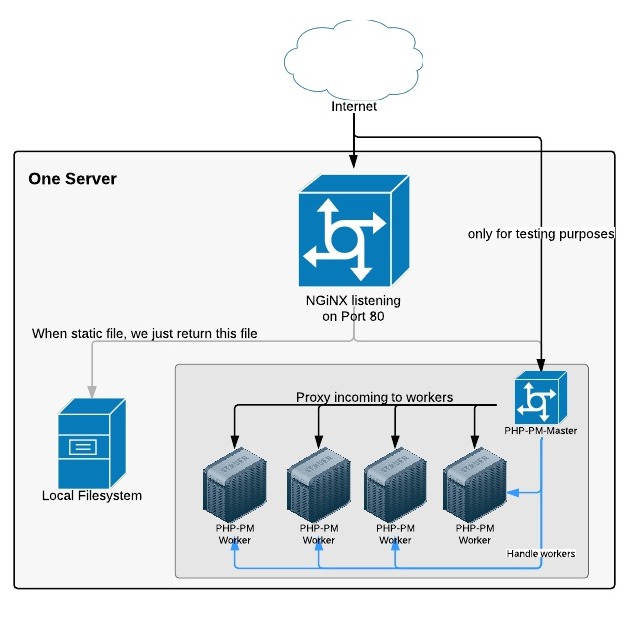PPM - PHP Process Manager
PHP-PM is a process manager for Request-Response Frameworks running in a ReactPHP environment. The approach of this is to kill the expensive bootstrap of PHP (declaring symbols) and bootstrap of feature-rich frameworks.
More information can be found in the article: Bring High Performance Into Your PHP App (with ReactPHP)
Installation
$ git clone git@github.com:php-pm/php-pm.git
$ cd php-pm
$ composer install
$ ./bin/ppmAdapter
HttpKernel for Symfony/Laravel - https://github.com/php-pm/php-pm-httpkernel
Drupal - https://github.com/php-pm/php-pm-drupal
Zend - https://github.com/php-pm/php-pm-zend
Command
Example
$ ./bin/ppm start ~/my/path/to/symfony/ --bridge=httpKernelEach worker starts its own HTTP Server which listens on port 5501, 5502, 5503 etc. Range is 5501 -> 5500+<workersCount>.
Setup 1. Use external Load-Balancer
Example config for NGiNX:
upstream backend {
server 127.0.0.1:5501;
server 127.0.0.1:5502;
server 127.0.0.1:5503;
server 127.0.0.1:5504;
server 127.0.0.1:5505;
server 127.0.0.1:5506;
}
server {
root /path/to/symfony/web/;
server_name servername.com;
location / {
try_files $uri @backend;
}
location @backend {
proxy_pass http://backend;
}
}Setup 2. Use internal Load-Balancer
This setup is slower as we can't load balance incoming connections as fast as NGiNX it does, but it's perfect for testing purposes.


